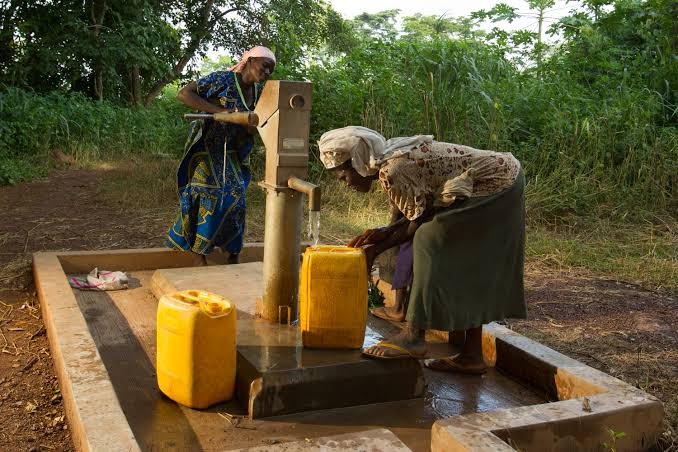The Co-founder and President of Safe Water for Africa Community Initiative, Michael Ale, has blamed the Nigerian masses’ inaccessibility to clean and safe water on lack of maintenance culture and economic hardship.
In a bid to prevent spread of water borne diseases, Ale urged governments “to invest heavily in the water sector to ensure that the masses can afford the luxury of safe and clean water, which has gone out of their reach.”
The development expert spoke in a statement made available in Ado Ekiti on Saturday as part of commemoration of the 2025 World Water Day with the theme, “Glacier Preservation.”
He said, “As the world commemorates World Water Day, the harsh reality for millions of Nigerians comes to the forefront, clean and safe water remains a privilege accessible only to the wealthy, while the poor continue to struggle with inadequate access to this fundamental human right.”
Ale, who canvassed the need for innovative and sustainable approaches to water management, traced the problem with safe water accessibility to high cost of drilling boreholes and the poor conditions of public water supply facilities, which he said could no longer get the liquid to needy citizens.
The SWACI president lamented that “the high cost of drilling a borehole which ranged between N1.5million and N2.6million was beyond the reach of many poor Nigerians, remained largely an obstacle to the reliable source of clean water.”
He said, “Another critical issue is the frequent breakdown of borehole infrastructure. Many community boreholes, often donated by the government, groups, philanthropists or politicians, become non-functional shortly after commissioning due to poor maintenance.
“Additionally, government-owned water treatment plants and pipelines are in a state of disrepair, forcing millions to rely on expensive or contaminated water sources.
“This has led to the rampant spread of waterborne diseases such as cholera and diarrhea, clear indicators of developmental stagnation due to inadequate Water, Sanitation, and Hygiene (WASH) facilities.”
The SWACI president disclosed that the body, in collaboration with other organisations, “has developed solutions to address these infrastructural challenges and improve water accessibility in Nigeria.”
He called on governments and non-governmental organisations to “collaborate to provide financial and technical support to communities and borehole operators to guarantee a sustainable supply of clean water.”
Ale, who is also the chairman of Male Integrated Science, a borehole drilling company, called on private borehole owners and investors to support innovative solutions such as Borehole Management System Software and Project Outcome Validation Aggregator to enhance borehole and waterworks management.
He also advised that “communities must advocate for accountability in water resource management to prevent further neglect of essential facilities to make clean and safe water a reality for all Nigerians.”
The expert advised, “Governments should focus on reviving and maintaining existing boreholes rather than investing in new ones that might also become neglected.”
He also urged well-meaning Nigerians and groups to support the government through provision of boreholes to needy communities, stressing that “governments alone cannot solve Nigeria’s water problems.”


